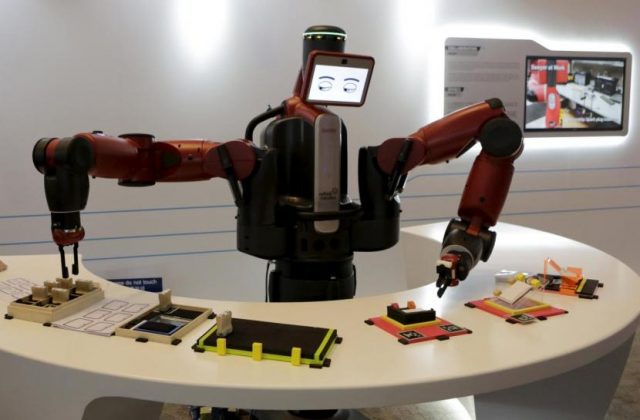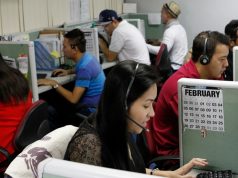
WASHINGTON — Americans express “more worry than enthusiasm” about driverless cars, robot caregivers and a future in which robots and computers perform many of the jobs currently done by humans, according to a survey released Wednesday by the Pew Research Center.
The nationally representative survey of 4,135 U.S. adults found that 72 percent of Americans are very or somewhat worried about the possibility of a robotic workforce that replaces humans — more than double the share (33 percent) that is enthusiastic about this prospect.
Americans are also around three times as likely to express worry (67 percent) than enthusiasm (22 percent) about algorithms that can make hiring decisions without any human involvement, it said.
Public views toward driverless cars and robot caregivers are somewhat more balanced: 54 percent of Americans express worry about the development of automated vehicles with 40 percent expressing enthusiasm, while 44 percent are enthusiastic and 47 percent worried about the possibility of robotic caregivers.
“This study suggests that the public is extremely wary about allowing machines to replace human responsibilities and human decision-making,” lead author Aaron Smith, an associate director of research at the Pew Research Center, said in a statement.
“Although they anticipate some benefits from the growing trend toward automation, they worry that even the most advanced technologies can never truly duplicate the creativity and insight of humans,” Smith said.
The survey found that a majority of Americans are reluctant to ride in a driverless car, use a robot caregiver, or apply for a job that used a computer program to select applicants, themselves, though a majority of Americans expect most cars on the road to be driverless within the next 50 years.
It also showed Americans generally strongly support policies that limit the reach of automation technologies and that place humans more fully in control of their processes.
“In the event that machines are capable of performing many human jobs, fully 85 percent of Americans are in favor of limiting them to performing jobs that are dangerous or unhealthy for humans,” the survey wrote.
“Similarly, the vast majority of Americans (87 percent) would favor a requirement that all driverless vehicles have a human in the driver’s seat who could take over the car in the event of an emergency.”
The survey also found roughly three-quarters of Americans (77 percent) think it is at least somewhat realistic that robots and computers might one day be able to perform many of the jobs currently done by humans.
Even so, just 30 percent think it very or somewhat likely that their own jobs or professions will be done by robots or computers in their lifetimes.
And six percent of Americans report that they have already been impacted by automation in the form of lost jobs or wages, according to the survey.
In addition, many Americans think it very or somewhat likely that jobs such as fast food worker (77 percent) and insurance claims processor (65 percent) will be replaced by robots or computers during their lifetimes, while around half expect the same will be true of jobs such as software engineer (53 percent) or legal clerk (50 percent).
On the other hand, comparably few expect that teachers (36 percent) or nurses (20 percent) will be replaced by machines over that time period, the survey added.









